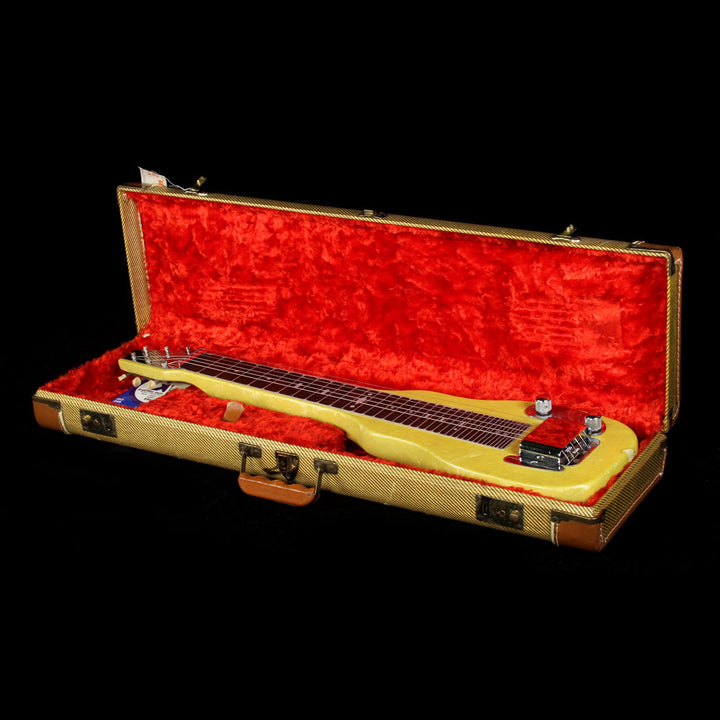


Americans were curious about the lap steel instrument featured in its performance, and came to refer to it as a "Hawaiian guitar", and the horizontal playing position as "Hawaiian style". American popular culture became fascinated with Hawaiian music during the first half of the twentieth century – to the degree of becoming a musical fad. The instrument's distinctive portamento sound, characterized by a smooth gliding between notes, became popular throughout the islands. It originated in the Hawaiian Islands about 1885, popularized by an Oahu youth named Joseph Kekuku, who became known for playing a traditional guitar by laying it across his lap and sliding a piece of metal against the strings to change the pitch. The steel guitar was the first "foreign" musical instrument to gain a foothold in American pop music. Lap steels may differ markedly from one another in external appearance, depending on whether they are acoustic or electric, but in either case, do not have pedals, distinguishing them from pedal steel guitar. Though the instrument does not have frets, it displays markers that resemble them. Unlike the usual manner of playing a traditional acoustic guitar, in which the performer's fingertips press the strings against frets, the pitch of a steel guitar is changed by pressing a polished steel bar against plucked strings (from which the name "steel guitar" derives). The lap steel guitar, also known as a Hawaiian guitar, is a type of steel guitar without pedals that is typically played with the instrument in a horizontal position across the performer's lap. Hawaiian guitar, lap steel, console steel, kīkākila, Dobro Fender "Champion" electric lap steel guitar


 0 kommentar(er)
0 kommentar(er)
